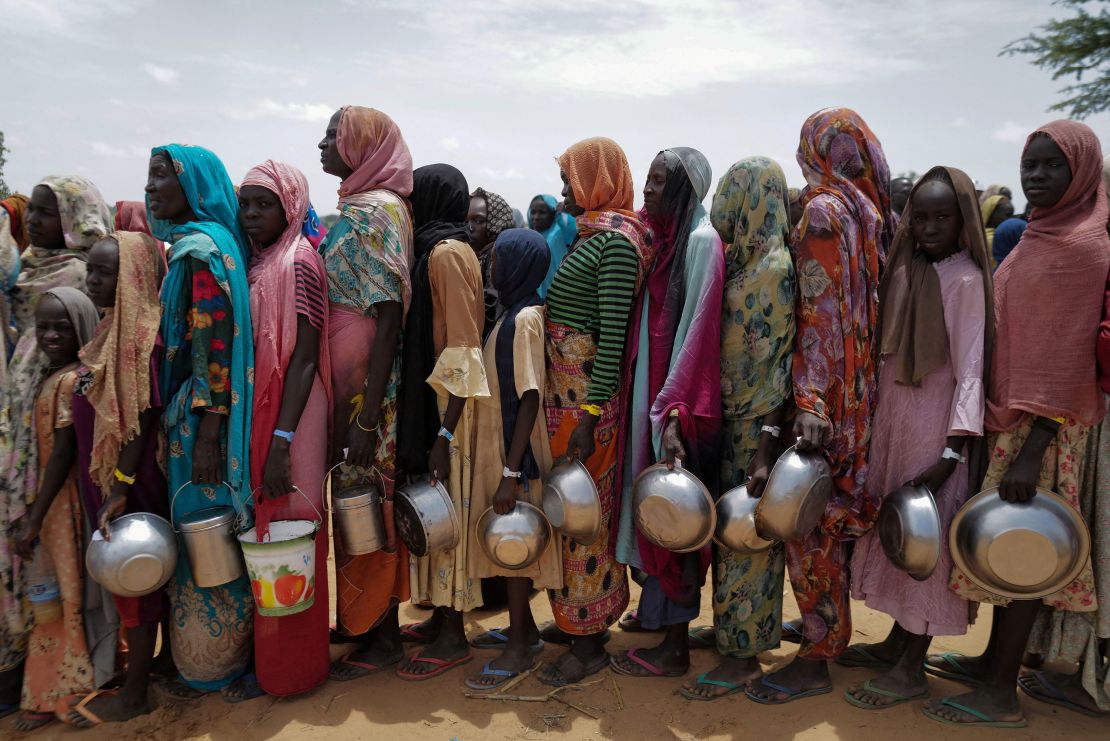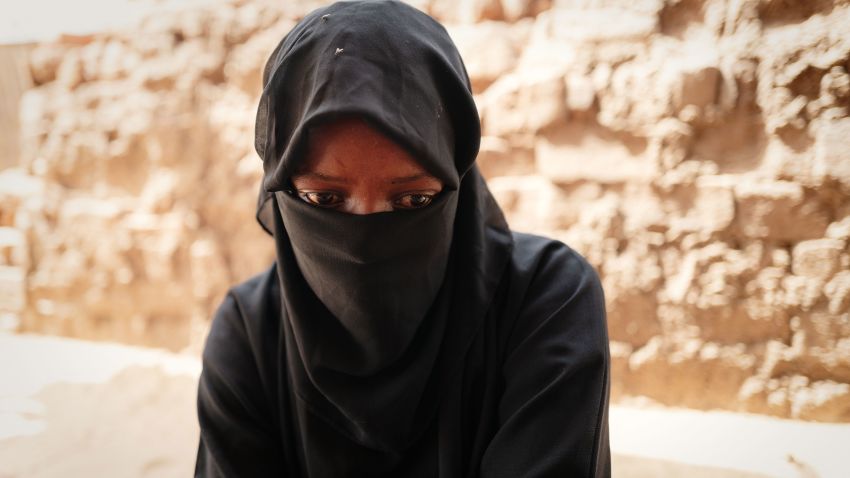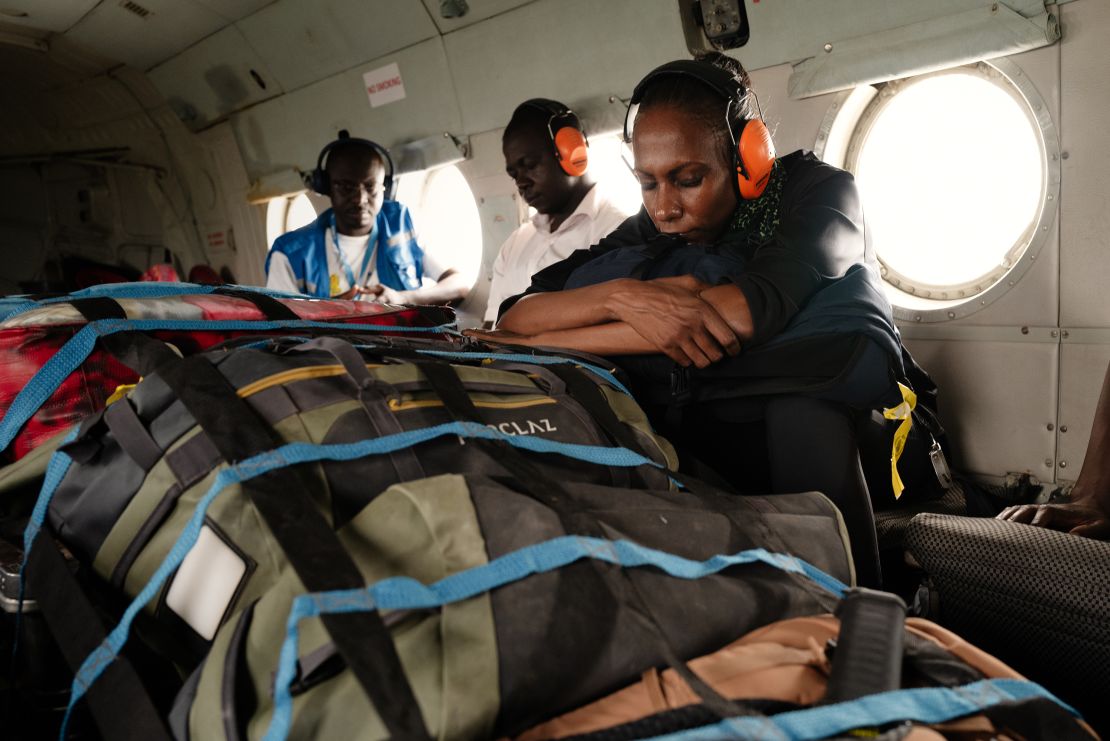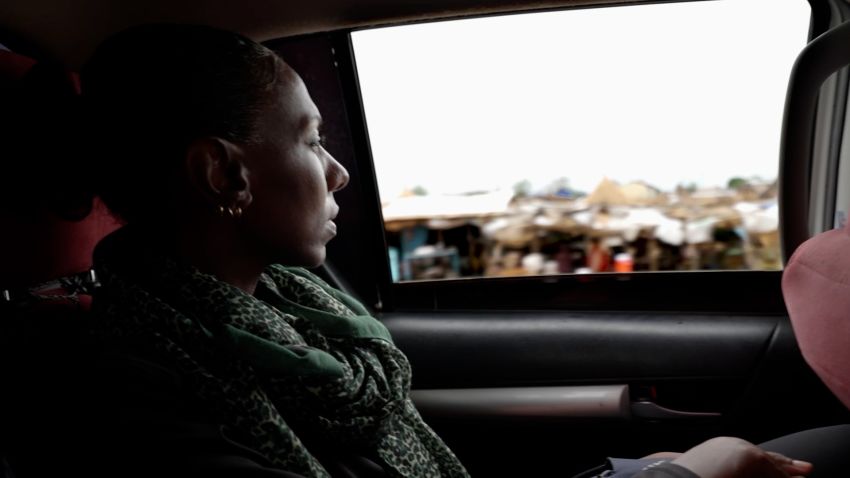I have reported on conflicts around the world for over two decades, but nothing prepares you to cover a war at home. To see familiar places occupied and demolished. To fully plunge the depth of your helplessness.
Yet my team and I set out to do just that this summer, working on a documentary about Sudan’s conflict and the hidden hands ultimately responsible for the atrocities that have come to define this war.
Two separate voices fought for space in my head. One voice – the journalist – asked questions, took down notes and talked through testimony. I worked with my team to tackle the enormity of the logistical and editorial challenges that comes with filming an investigative documentary in a country ravaged by war.
The second voice, which I tamped down while working, was closer to a babble, looping round and round in my head, reminding me that I could never truly run away from the fact that this was home, this was personal.
“You, a people, whose spirit of revolution is ablaze”
The music accompanying these words is sometimes joyful, sometimes somber, sometimes martial, interpreted as they have been by so many of Sudan’s musical maestros. To so many Sudanese, though, they are instantly recognisable as the words of the people’s poet: Mahjoub Sharif.
“The depth of your sense of freedom will become a defining trait, running down the line of your descendants.”
Even now, I hear his words and I’m instantly transported back to being five years old. To the first time I watched my mother cry in our London kitchen, as she copied tapes over on our double cassette deck, one reel playing out the songs as the other recorded. We’d then pass the original on to whoever was next in line in their small community of exiles.

Sharif’s weren’t the only tapes that she and my father waited for impatiently. There were love songs from their youth, traditional tribal music for my village-boy father, and the latest songs taking over weddings and parties in Sudanese cities. It was the music of home, transporting them back to the country they’d loved so much that they’d been forced to leave it.
I was warned to never, ever play with any of the tapes in the cassette deck, especially the tapes of Sharif’s songs. What I didn’t know at the time is that the tapes of his songs were contraband, smuggled out at risk of execution – his words deemed as dangerous as the protests they inspired.
Nonetheless, I learned at an early age that words could get you killed.
My mother’s and father’s words, as journalists, forced them into exile. My words – and my team’s work – investigating the RSF’s alliance with Russia got me indicted by pro-RSF authorities. For a year, it was too dangerous to go home.
Yet, the moment the war broke out earlier this year, home was the only place I wanted to be.
I am a child of exile because my parents aspired to practise journalism in a country where basic freedoms were withheld. In one of the interludes of stability between our bouncing around – Khartoum, Cairo, Jeddah and London – my parents set up a newspaper, initially in Sudan. That was during a lull between periods of military rule. Its publication later moved to Cairo, then back to Sudan in 2000, when my parents were persuaded to return home by a promise of democratization by then-dictator Omar al-Bashir.
I am now past the age my mother was when we were in that kitchen in London. Over the past few years, I have been watching and reporting on the upheaval back home in Sudan, in the aftermath of the overthrow of Bashir.
This has been the first time I’ve seen my country through my parents’ eyes. In 2019, I watched in awe as people flooded the streets and resisted gunfire to defy Bashir, and I watched in tears as the very soldiers Bashir had nurtured and elevated seized back control.
What it’s brought home to me is that everything I am as a journalist stems from everything my parents are and still aspire to: the belief that we all – even those of us living far from Western capitals – deserve to dream of better. Everyone deserves a country that feels like it belongs to its people, not strongmen and soldiers. Everyone deserves the freedom to raise their voices.
That is what has informed my work and the investigations we do.
In April, when fighting broke out between Sudan’s army and the leadership of the paramilitary Rapid Support Forces, implicated in a previous genocide in Sudan’s western Darfur region, the team and I jumped straight in.
We were broadcasting live. I was on air almost non-stop and in between those reports, I was messaging with my siblings around the world on how we would convince our parents to leave their home.
Then the best news came. CNN’s US documentary strand “The Whole Story” wanted to commission an hour on Sudan. It was more than the team and I could have hoped for. We began to plan and I began to retreat into my place of experience and comfort, my journalist self.

Who is behind this? Who is supporting and sustaining the fight? How do we get the world to care? The kind of questions we ask at the start of any investigation. Questions, though that hit a little differently because for me it was home. When the very act of seeking answers has implications for people you love, when the answers cast doubt on your family’s ability to ever return home again, the equation changes.
For hours, the team and I worked under the raffia mat roof of a traditional wooden structure near the Chad-Sudan border, setting up and rearranging ourselves as best we could, as interviewee after interviewee sat down in front of our cameras. There were almost two dozen in just one of the sittings.
They were all bravely willing to record their testimony, what they had witnessed, what they had been forced to endure just across the border in Darfur.
We arrived here after almost three weeks spent crossing through Sudan, and the months prior, investigating how Emirati backing, and Russia’s provision of support via its Wagner proxy militia and regional meddling, had enabled this war.
This was also the moment when we finally got to hear from the victims themselves. I sat on the ground listening to witness testimony, to young girls describing holding their younger brothers as the blood drained out of them, to litanies of rape, humiliation and enslavement, to descriptions of the depth and expanse of people’s loss. I found that I was furious.
My journalist self was no longer a place I could hide.

Even now back home in London, I find my rage is sometimes hard to contain. Again and again and again, I turn their stories over in my mind. I’ve never been ashamed of crying but for too long the tears wouldn’t come.
Forty years after I watched my parents sing and cry and laugh to the Sudanese songs smuggled out to them, I find myself searching through Spotify for Sudanese playlists. I must not be the only one because almost every day I find new ones: love songs, pop songs about girls running barefoot to answer the door to aspiring suitors. Songs likening a beloved’s smile to a string of pearls, threaded to match the beauty mark on her cheek.
Listening to those songs – the poetry of Sharif and Mohammed Mekki Ibrahim, the soaring vocals of Mohammed Wardi and Abdelgadir Salim – that is the only time I find myself able to cry.
Those songs and what they meant for my parents, for the generations before them and the generations fighting for freedom today remind me that we, as a people, have been here before. That we overcame. That even now, surrounded by horror and bloodshed, so many Sudanese still believe in change.
We still talk about democracy as a right. As an inevitability.

